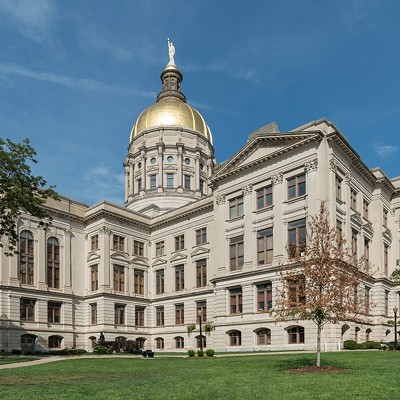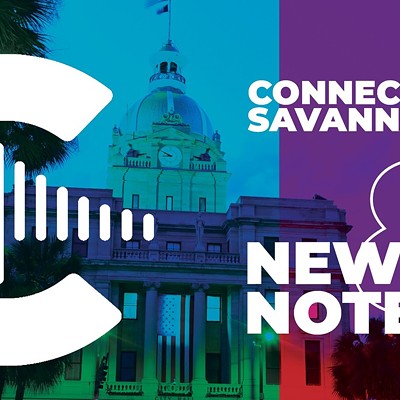Tallying up the taxes
[
{
"name": "Air - MedRect Combo - Inline Content 1",
"component": "14680855",
"insertPoint": "7",
"requiredCountToDisplay": "5",
"parentWrapperClass": "fdn-ads-inline-content-block"
},{
"name": "Air - MedRect Combo - Inline Content 2",
"component": "14680856",
"insertPoint": "15",
"requiredCountToDisplay": "9",
"parentWrapperClass": "fdn-ads-inline-content-block"
},{
"name": "Air - SVP - Leaderboard - Inline Content - 2",
"component": "16852291",
"insertPoint": "10",
"requiredCountToDisplay": "10",
"parentWrapperClass": "fdn-ads-inline-content-block"
},{
"name": "Air - SVP - Leaderboard - Inline Content - 3",
"component": "16852292",
"insertPoint": "20",
"requiredCountToDisplay": "18",
"parentWrapperClass": "fdn-ads-inline-content-block"
},{
"name": "Air - SVP - Leaderboard - Inline Content - 1",
"component": "16852290",
"insertPoint": "25",
"requiredCountToDisplay": "22",
"parentWrapperClass": "fdn-ads-inline-content-block"
}
]
Government reaches deep into the personal and professional lives of every individual in this country. Almost every time money changes hands, government gets a cut. It also exacts fees for hunting, fishing, owning a pet, building a building, running a business, practicing a profession, drilling a well and driving a car. It exacts fines for breaking its rules.
Georgia government also profits from the gambling business.
The following is a broad strokes outline of the federal, state and local tax structure and government funding mechanisms. Many thanks to the National Taxpayers Union (www.ntu.org), especially Pete Sepp, Vice President for Communication, and Annie Patnaude, Deputy Press Secretary, for their assistance.
Income tax
According to former Internal Revenue Service historian Shelley Davis, President Abraham Lincoln instituted the first U.S. income tax in 1862, creating the Bureau of Internal Revenue to pay Civil War costs.
Davis book, Unbridled Power, says the tax rate was three percent for income between $600 and $10,000, and five percent for income over $10,000. Lincoln also initiated a wide spectrum of excise taxes on such things as legal documents, ferry, railroad, steamboat and toll bridge receipts, as well as advertising.
After much controversy, the income tax was repealed in 1872. The Wilson Tariff Act revived it in 1894, with the plan to tax household incomes over $4000 at a one percent rate. President Grover Cleveland allowed it to become law without signing it, but in 1895 the Supreme Court declared it unconstitutional, on the grounds that it was a direct tax not equally apportioned among the population.
On October 3, 1913, President Woodrow Wilson signed the 16th Amendment to the Constitution, which established the basis of todays income tax law. It was billed as a class tax, because only about one percent of the population met the income requirements. The document was 14 pages long.
The costs of World War II expanded the class tax to a mass tax, under President Franklin Delano Roosevelt. Automatic withholding and payroll taxes were also instituted during Roosevelts administration.
Federal income tax for individuals is based on a graduated scale beginning at ten percent for income up to $7,150 per year. There are five additional tax brackets, with the highest bracket, for net income over $319,000, set at 35 percent.
Georgia income tax is six percent for net income over $7,000.
Payroll taxes
These include Social Security taxes of 12.4 percent and Medicare taxes of 2.9 percent, split half-and-half by employer and employee. There is also a Federal Unemployment tax (FUTA) of 6.2 percent for employers and a State Unemployment tax (SUTA) based on the number of claims filed by terminated employees. Self-employed individuals pay the same percentages.
Sales tax
Georgia sales tax is four percent. Each county within the state has an additional sales tax, depending on the county. Most are two or three percent.
Chatham County collects a one percent Local Option tax, instituted in 1976. These revenues go into the general fund.
A one percent Special Purpose tax, begun in 1985 and renewed every four years, was initially passed to subsidize roads and bridges, but in 1993 parks were added to the list, and in 1998 voters approved inclusion of drainage and building projects.
Food is exempt from state but not local sales tax. Motor fuels are taxed primarily as excise taxes, but there is a one percent state sales tax and a two percent local sales tax.
Excise taxes
These are taxes levied on products and services that are presumed to cross international boundaries, according to local CPA Allison Johnston. These include motor fuels, liquor, tobacco, firearms, hunting and fishing equipment, transportation, freight and communication services.
The federal excise tax on gasoline is 18.4 cents/gallon, and the Georgia excise tax is 7.5 cents/gallon. The federal excise tax on diesel fuel is 24.4 cents/gallon.
Georgia also has a Second Motor Fuel Tax of three percent, plus a one percent sales tax on gasoline. Chatham County gets two percent in sales taxes. At a price of $2.10 per gallon, government gets 36.9 cents directly through taxes.
However, according to the Americans for Tax Reform (atr.org) the government also imposes 43 different direct and indirect taxes on the production and distribution of gas. The total tax burden amounts to 54 percent of the final price.
Federal excise taxes on telephone and wireless services are three percent. There is also a Federal Universal Service Charge for telephone service.
Georgia collects four percent, and Chatham County gets two percent in sales taxes. There is a charge for 911 service, and some companies charge a fee to cover costs of complying with government regulations.
Airline travel includes a 7.5 percent federal ticket tax and a $3.20 federal flight segment tax. There is a federal security surcharge of $2.50, and at eligible airports an airport passenger facility charge of up to $4.50. International travelers also pay international departure and international arrival taxes of $14.10 each, INS user fees of $7, customs user fees of $5 and APHIS passenger fees of $4.95, according to information compiled by the Air Transport Association.
Federal excise tax on distilled spirits alcohol was $13.50/gallon in 2002. Georgia tax was $3.79 in 2003,
according to www.taxfoundation.org.
Federal tobacco tax is 39 cents/pack, and Georgia tobacco tax is 37 cents/pack of 20 cigarettes. This from the National Conference of State Legislatures, www.Tobaccofreekinds.org and the USDA Economic Research Service Report.
Property taxes
Property tax is an ad valorem tax, meaning according to value. The Georgia Department of Revenues web site states that all real and personal property are taxable, unless specifically exempted.
Real property includes land and buildings, and personal property is everything that can be owned that isnt real estate. Vehicle license plate fees include an ad valorem tax.
The Chatham County Assessors Office appraises real estate within the county and assigns an assessed valuation, which is 40 percent of the appraised fair market value, for tax purposes.
According to Corky Corcoran, a staff appraiser, the tax amount is determined by multiplying the assessed valuation by the mill rate for that location. This is a point system used to determine funding for different tax districts in the county. A mill is one thousandth of a dollar ($.001).
Currently, the county-wide school district has the highest mill rate, at 15.878 mills, with an additional 1.722 mills for school bonds. The mill rate for real and personal property within the city of Savannah is 13.10.
City dwellers also pay 10.367 mills for Chatham County and .250 mills to the state. Those on a bus line pay .820 mills to the Chatham Area Transit District.
Licenses and fees
There is a $20 license fee for vehicle tags, and a four-year Georgia drivers license costs $15. In 2003, Georgia collected a total of $257,184,000 from these and $195,329,000 from other licenses.
Permits, fines and levies
These provide other income for local, state and federal jurisdictions.
Apportionment
According to the US Office of Management and Budget (www.omb.gov), individual income taxes comprise the largest segment of federal tax revenues (45 percent), and payroll taxes bring 37 percent. The corporate tax contribution is 10 percent, and excise taxes comprise most of the remainder.
This does not include other sources of federal revenue, such as timber contracts on national forest lands, oil drilling contracts in Alaskan wildlife refuges, confiscated property, fines, sale of public buildings, or fees collected at government parks, museums and public places.
Direct taxation accounts for about 53 percent of most state revenues, with the remainder coming from intergovernmental transfers, like federal grants, insurance trust funds, such as unemployment and retirement pensions, and other sources. Sales and gross receipts, including excise taxes, account for 50 percent of tax income. Individual income taxes pay 40 percent, and corporate income tax provides 6 percent.
Chatham County depends on direct taxes for about 83 percent of its income, according to Read DeHaven, Budget Officer for Chatham County. This does not include the $3.8 million (3.5 percent) it receives from state and federal grants and indirectly from taxes.
Of its $107,294,884 FY 2004/2005 budget, $59,925,310 (56 percent) comes from property taxes, $8,300,000 (8 percent) from sales taxes and $20,879,390 (19 percent) from other taxes, such as real estate transfer tax.
It gets $8.8 million for charges for services, like rent, housing prisoners, and fees; $3.7 million in court fines, including traffic tickets; and $620,000 from licenses.
Georgia government also profits from the gambling business.
The following is a broad strokes outline of the federal, state and local tax structure and government funding mechanisms. Many thanks to the National Taxpayers Union (www.ntu.org), especially Pete Sepp, Vice President for Communication, and Annie Patnaude, Deputy Press Secretary, for their assistance.
Income tax
According to former Internal Revenue Service historian Shelley Davis, President Abraham Lincoln instituted the first U.S. income tax in 1862, creating the Bureau of Internal Revenue to pay Civil War costs.
Davis book, Unbridled Power, says the tax rate was three percent for income between $600 and $10,000, and five percent for income over $10,000. Lincoln also initiated a wide spectrum of excise taxes on such things as legal documents, ferry, railroad, steamboat and toll bridge receipts, as well as advertising.
After much controversy, the income tax was repealed in 1872. The Wilson Tariff Act revived it in 1894, with the plan to tax household incomes over $4000 at a one percent rate. President Grover Cleveland allowed it to become law without signing it, but in 1895 the Supreme Court declared it unconstitutional, on the grounds that it was a direct tax not equally apportioned among the population.
On October 3, 1913, President Woodrow Wilson signed the 16th Amendment to the Constitution, which established the basis of todays income tax law. It was billed as a class tax, because only about one percent of the population met the income requirements. The document was 14 pages long.
The costs of World War II expanded the class tax to a mass tax, under President Franklin Delano Roosevelt. Automatic withholding and payroll taxes were also instituted during Roosevelts administration.
Federal income tax for individuals is based on a graduated scale beginning at ten percent for income up to $7,150 per year. There are five additional tax brackets, with the highest bracket, for net income over $319,000, set at 35 percent.
Georgia income tax is six percent for net income over $7,000.
Payroll taxes
These include Social Security taxes of 12.4 percent and Medicare taxes of 2.9 percent, split half-and-half by employer and employee. There is also a Federal Unemployment tax (FUTA) of 6.2 percent for employers and a State Unemployment tax (SUTA) based on the number of claims filed by terminated employees. Self-employed individuals pay the same percentages.
Sales tax
Georgia sales tax is four percent. Each county within the state has an additional sales tax, depending on the county. Most are two or three percent.
Chatham County collects a one percent Local Option tax, instituted in 1976. These revenues go into the general fund.
A one percent Special Purpose tax, begun in 1985 and renewed every four years, was initially passed to subsidize roads and bridges, but in 1993 parks were added to the list, and in 1998 voters approved inclusion of drainage and building projects.
Food is exempt from state but not local sales tax. Motor fuels are taxed primarily as excise taxes, but there is a one percent state sales tax and a two percent local sales tax.
Excise taxes
These are taxes levied on products and services that are presumed to cross international boundaries, according to local CPA Allison Johnston. These include motor fuels, liquor, tobacco, firearms, hunting and fishing equipment, transportation, freight and communication services.
The federal excise tax on gasoline is 18.4 cents/gallon, and the Georgia excise tax is 7.5 cents/gallon. The federal excise tax on diesel fuel is 24.4 cents/gallon.
Georgia also has a Second Motor Fuel Tax of three percent, plus a one percent sales tax on gasoline. Chatham County gets two percent in sales taxes. At a price of $2.10 per gallon, government gets 36.9 cents directly through taxes.
However, according to the Americans for Tax Reform (atr.org) the government also imposes 43 different direct and indirect taxes on the production and distribution of gas. The total tax burden amounts to 54 percent of the final price.
Federal excise taxes on telephone and wireless services are three percent. There is also a Federal Universal Service Charge for telephone service.
Georgia collects four percent, and Chatham County gets two percent in sales taxes. There is a charge for 911 service, and some companies charge a fee to cover costs of complying with government regulations.
Airline travel includes a 7.5 percent federal ticket tax and a $3.20 federal flight segment tax. There is a federal security surcharge of $2.50, and at eligible airports an airport passenger facility charge of up to $4.50. International travelers also pay international departure and international arrival taxes of $14.10 each, INS user fees of $7, customs user fees of $5 and APHIS passenger fees of $4.95, according to information compiled by the Air Transport Association.
Federal excise tax on distilled spirits alcohol was $13.50/gallon in 2002. Georgia tax was $3.79 in 2003,
according to www.taxfoundation.org.
Federal tobacco tax is 39 cents/pack, and Georgia tobacco tax is 37 cents/pack of 20 cigarettes. This from the National Conference of State Legislatures, www.Tobaccofreekinds.org and the USDA Economic Research Service Report.
Property taxes
Property tax is an ad valorem tax, meaning according to value. The Georgia Department of Revenues web site states that all real and personal property are taxable, unless specifically exempted.
Real property includes land and buildings, and personal property is everything that can be owned that isnt real estate. Vehicle license plate fees include an ad valorem tax.
The Chatham County Assessors Office appraises real estate within the county and assigns an assessed valuation, which is 40 percent of the appraised fair market value, for tax purposes.
According to Corky Corcoran, a staff appraiser, the tax amount is determined by multiplying the assessed valuation by the mill rate for that location. This is a point system used to determine funding for different tax districts in the county. A mill is one thousandth of a dollar ($.001).
Currently, the county-wide school district has the highest mill rate, at 15.878 mills, with an additional 1.722 mills for school bonds. The mill rate for real and personal property within the city of Savannah is 13.10.
City dwellers also pay 10.367 mills for Chatham County and .250 mills to the state. Those on a bus line pay .820 mills to the Chatham Area Transit District.
Licenses and fees
There is a $20 license fee for vehicle tags, and a four-year Georgia drivers license costs $15. In 2003, Georgia collected a total of $257,184,000 from these and $195,329,000 from other licenses.
Permits, fines and levies
These provide other income for local, state and federal jurisdictions.
Apportionment
According to the US Office of Management and Budget (www.omb.gov), individual income taxes comprise the largest segment of federal tax revenues (45 percent), and payroll taxes bring 37 percent. The corporate tax contribution is 10 percent, and excise taxes comprise most of the remainder.
This does not include other sources of federal revenue, such as timber contracts on national forest lands, oil drilling contracts in Alaskan wildlife refuges, confiscated property, fines, sale of public buildings, or fees collected at government parks, museums and public places.
Direct taxation accounts for about 53 percent of most state revenues, with the remainder coming from intergovernmental transfers, like federal grants, insurance trust funds, such as unemployment and retirement pensions, and other sources. Sales and gross receipts, including excise taxes, account for 50 percent of tax income. Individual income taxes pay 40 percent, and corporate income tax provides 6 percent.
Chatham County depends on direct taxes for about 83 percent of its income, according to Read DeHaven, Budget Officer for Chatham County. This does not include the $3.8 million (3.5 percent) it receives from state and federal grants and indirectly from taxes.
Of its $107,294,884 FY 2004/2005 budget, $59,925,310 (56 percent) comes from property taxes, $8,300,000 (8 percent) from sales taxes and $20,879,390 (19 percent) from other taxes, such as real estate transfer tax.
It gets $8.8 million for charges for services, like rent, housing prisoners, and fees; $3.7 million in court fines, including traffic tickets; and $620,000 from licenses.





























